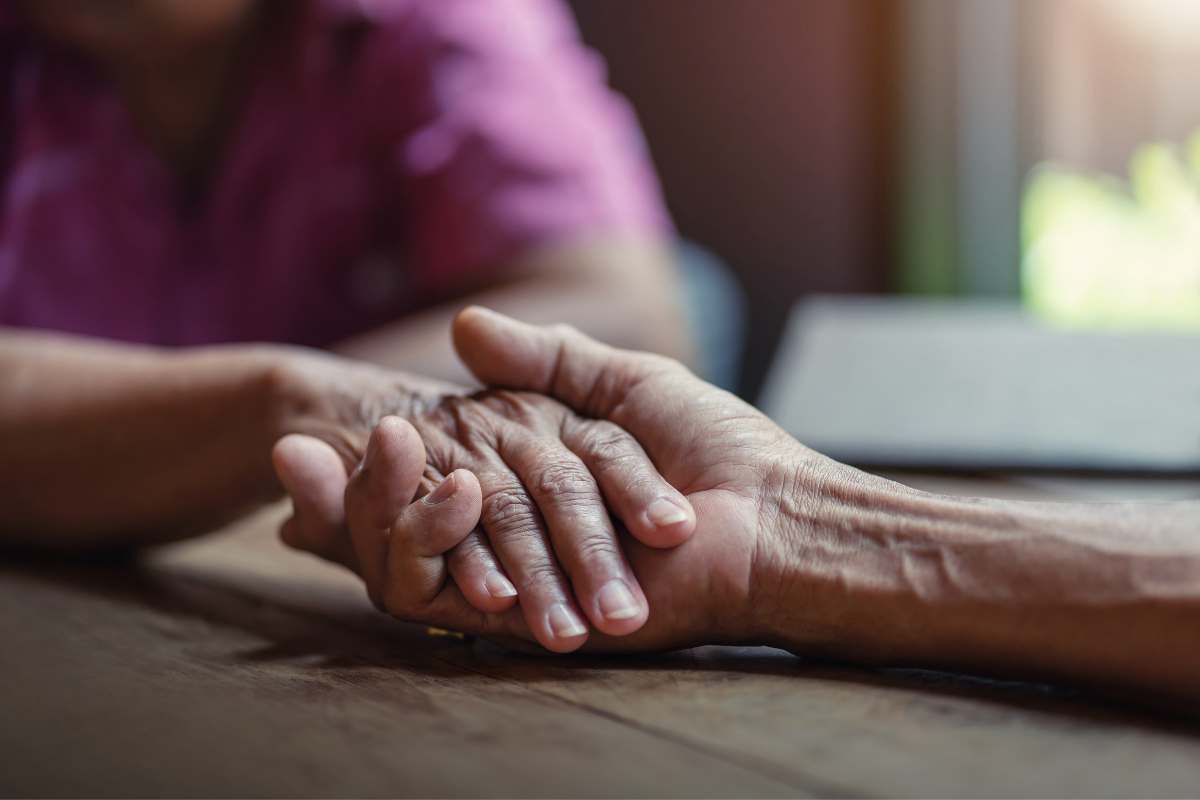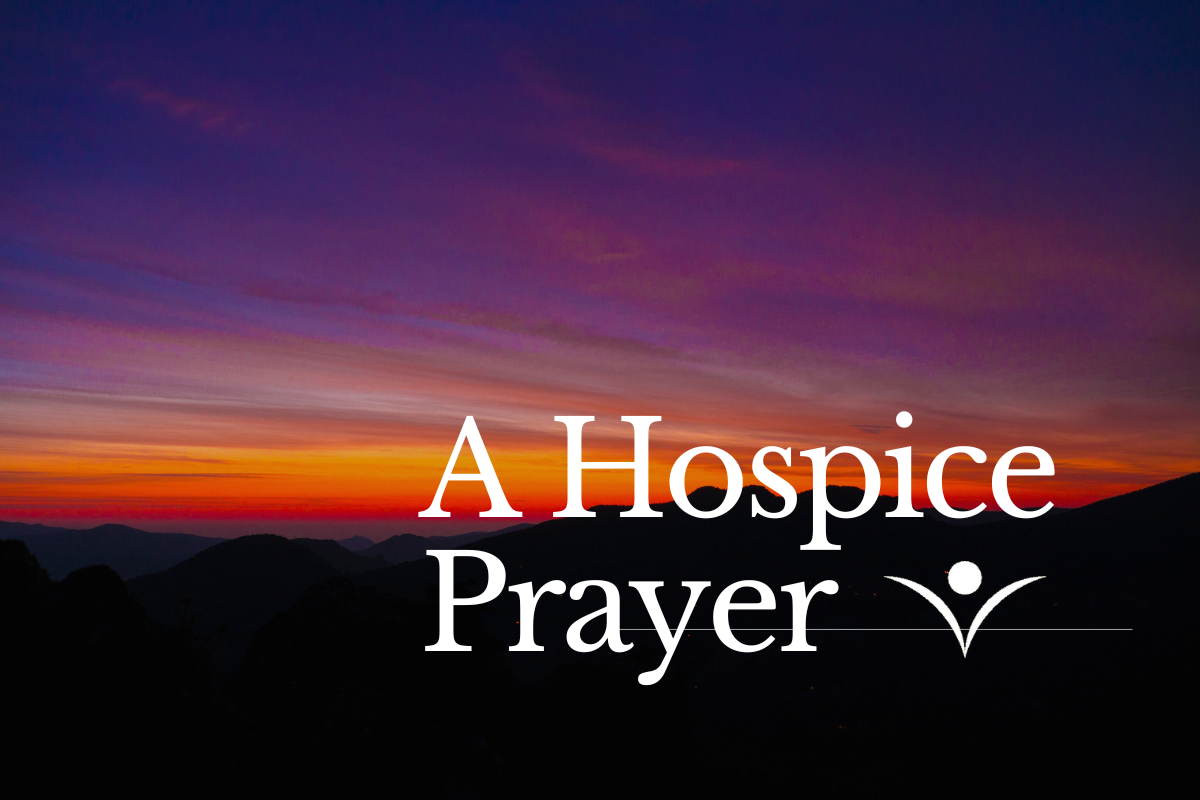The Importance of Forgiveness at End of Life

“Apologize to your sister!”
We can all remember this type of instruction from our childhood. You offer up a mumbled apology, share a quick hug, and then play resumes. Parents use these moments to teach the rituals of forgiveness. It often goes smoothly because the infractions of children are small – with no lasting impact.
When it’s the adults who need to forgive, it gets more complex. The infractions are bigger. Years of pain and resentment are difficult to dismiss. Yet, despite how hard it is, forgiveness is an important part of healing and forgiveness at end of life because it can benefit both parties in profound ways.
The Importance of Forgiveness at End of Life
Hospice professionals bear witness to the pain of unresolved conflict and the power of forgiveness at end of life on a daily basis. They watch as agitation recedes when an estranged family member reaches out to hold their terminally ill loved one’s hand. They also see the heartbreak when a loved one refuses to take their dying relative’s call.
Sometimes, the reasons for refusing to forgive are understandable like past abuse, addiction issues, or abandonment. Yet even in these difficult situations, there is value to the wounded party in offering forgiveness at end of life.

How Forgiveness Helps
The act of forgiveness provides rewards for both your mental and physical health. Despite the cliché of “forgive and forget,” it’s not realistic in most cases. Forgiveness doesn’t mean forgetting or justifying major transgressions. But it does mean letting go of the resentment, anger, and bitterness those actions have brought to your life.
Forgiveness isn’t always easy. You may need support from a therapist or spiritual leader to help navigate the complex emotions you feel. You may need to forgive many times. But letting go of that negativity can:
- Lower blood pressure
- Reduce anxiety and stress
- Reduce symptoms of depression
- Provide better immune system
- Foster improved mental health
- Allow for healthier personal relationships
When the person who hurt you is approaching end of life, time becomes a factor. If you are able to offer forgiveness, you may find it benefits you more than them as you are freed of the resentment and possible future guilt over leaving things unsaid.

When Forgiveness Doesn’t Happen
While forgiveness benefits all sides, it also can’t be rushed. Individuals who were harmed need to come to forgiveness on their own terms. You can start on the path to forgiveness by sincerely apologizing to the person you hurt and taking responsibility for your own actions by offering an explanation of why it happened and how you would like to make amends.
It is important to give the person who was wronged the chance to express how the situation affected them. This can be difficult to hear, but it is a necessary part of the process.
Even if you make a heartfelt apology and try to make amends, the person who was hurt may not forgive you. While this is a difficult experience, forgiveness is a journey and it may come at a later time. You should follow the lead of the person who has been hurt and give them the space they need.
You may also be in a situation where you are unable to speak directly to someone you have hurt with your actions. This happens for Veterans who carry guilt from their actions in wartime, but it can also be true if a person you hurt refuses to communicate with you. In this case, you need to seek self-forgiveness. We are only human. We make mistakes – sometimes huge mistakes. Individuals can forgive. God can forgive. You can forgive.
Speak to a therapist, chaplain, or social worker about how your mistakes are impacting your life. They can offer guidance on how to move forward and find forgiveness at end of life.
To learn more about our hospice services and how we can help heal emotional wounds at end of life, please call 1-888-564-3405.
If you found this information helpful, please share it with your network and community.
Copyright © 2020 Crossroads Hospice & Palliative Care. All rights reserved.




